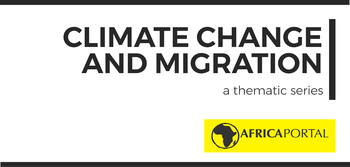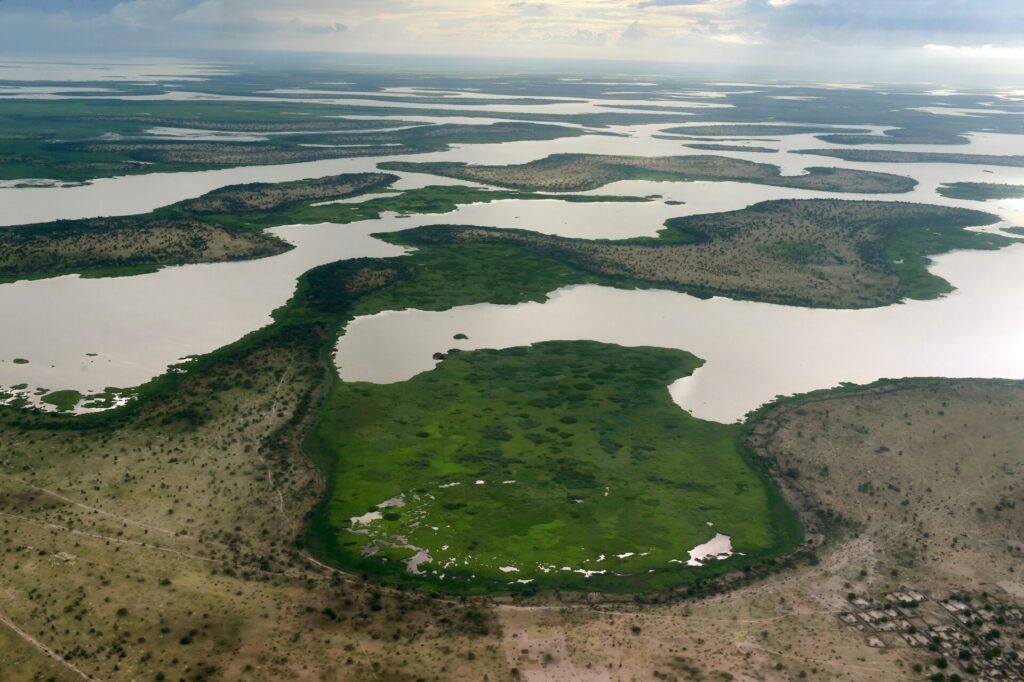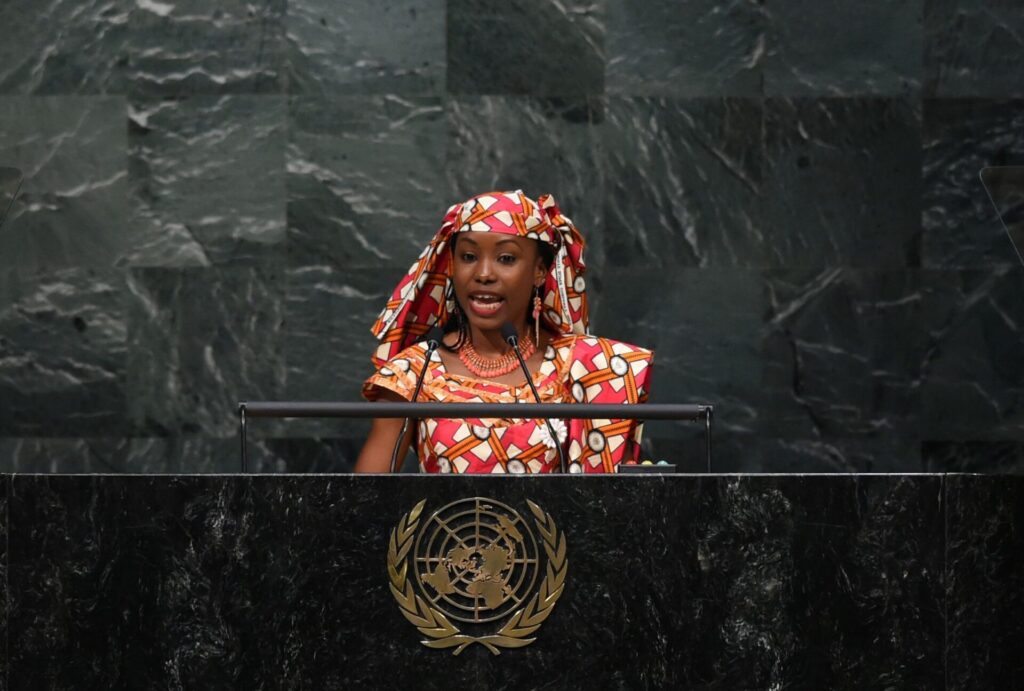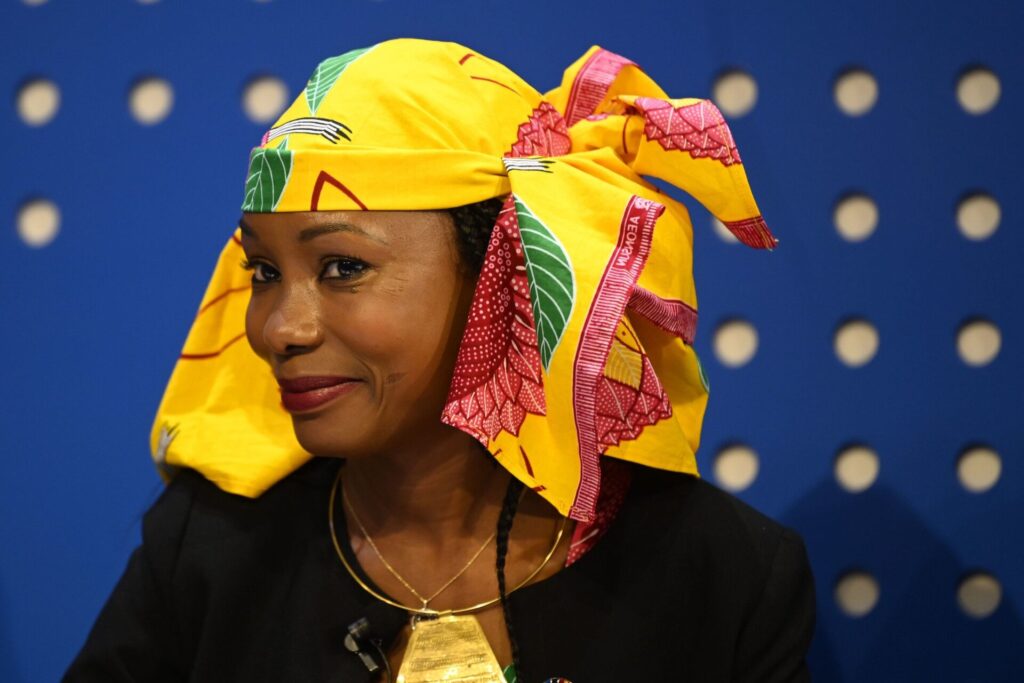As part our Climate Change and Migration in Africa thematic series, we interviewed Hindou Oumarou Ibrahim, an environmental activist from Chad, founder of the Association for Indigenous Women and Peoples of Chad (AFPAT), and current co-chair of the International Indigenous Peoples Forum on Climate Change, the indigenous peoples’ caucus to the UN. She details how climate change has impacted her Mbororo pastoralist community and the importance of incorporating indigenous communities in global negotiations.
AP: Thank you for speaking with us. How has global warming affected the Mbororo community in Chad and resulted in migration?
Let me first explain how climate change has impacted my country and the Sahel region, as this will help people understand why it is leading to migration. Climate change is impacting us in two ways. Firstly, it is impacting our environment and, secondly, it is impacting the social life of indigenous peoples.

If we begin by looking at the environment 10-15 years ago, we can see that gradually the seasons have been changing a lot. Most of our indigenous peoples – about 80 percent of them – are dependent on agriculture: so they are farmers, pastoralists and fishermen. For them, when the environment changes, it impacts their life directly. And over the past 10-15 years, we have seen the rainy season becoming much and much shorter but with heavy rain that can flood our crops. We have also seen much less regular rain at times that creates drought.
Last year is a good example as we had a heavy rainy season. My indigenous peoples are nomadic, as are the many living around Lake Chad, so they leave during the rainy season and migrate far from the lake but when the rainy season ends they return to the lake to get more water and plant crops. Last year, they returned to the lake because they thought the rainy season had ended. But after three weeks when everyone had returned, the rain came back again and it was heavy – flooding our crops. At the end of the day, we received a lot of water but no food from our crops. We have irregular seasons now: you can have a very hot season or a very rainy season and both will impact the livelihood of indigenous peoples.
“Migration is happening because men have to confirm their dignity.”
Looking at the social impact, in Africa, the role of a man and a woman is different: man has the responsibility to feed his family. When there is not a good rainy season and our crops fail, our men feel that their dignity is under threat.
And if you are a man who can’t feed your family, you have to find other solutions. This then leads men to migrate. And for us there are different kinds of migration.
There is internal migration – this happens a lot. In my community, migration is our natural way of life as cattle herders and we move between Chad, Cameroon, Nigeria and the Central African Republic. This is the normal life of a pastoralist who by migrating actually protects the ecosystems of all these places. But more and more in many communities, men are leaving to look for work in the towns because of climate change. They leave the women, the children and old people behind. And when they cannot get a job, they have to keep going and going and this leads to regional migration and sometimes international migration.
Chad is a landlocked country and the nearest sea is more than 1000km away and that’s via the migration road through Libya. Sometimes these men end up in some town in Chad, sometimes in Libya, or sometimes even in Europe. Then you have some who migrate through Sudan as it’s easier to cross the sea to Saudi Arabia from there.
This migration is happening because men have to confirm their dignity. But where you have this migration – whether internal, regional or international – people think we are coming to invade them or to take their land. But they do not see the reality on the ground. For us, the reality is that just one seasonal change can impact the life of the entire community. It has made our indigenous peoples more vulnerable because those who are left behind are women and children. And the women have to play all roles – they have to be the mother, the father, and they must secure the community left behind.

AP: What are the various risks facing these migrants?
For my community, who are pastoralists, there are many consequences.
When we used to migrate, we used to pass through special corridors where there was always access to water. But now in one season, there can be a lot of change and there may not be enough resources from one year to the next on this corridor for all of us – but we need to let the ecosystem regenerate. Sometimes when we come back along the corridor, farmers have come and set up and you find the corridor closed. There is land grabbing by small farms and government – they think the land is wet and fertile for farming. We then have to go around these farms and it can take very long. Sometimes there is no water and we cannot take the risk that our community and cattle cannot drink water and we have to pass through the farm. But the police and the military are often guarding the farms or they make us pay a big fine or they take our cattle. Our community cannot always do this and then there is a big fight. There is conflict between communities and they fight to death.
This happened just some weeks ago to my uncle and his community who are semi-nomadic. He migrated to Central African Republic but the indigenous peoples there wanted to take his cattle and there was conflict. He fought them and they killed him.
We are now trying to show that this climate change migration is linked to insecurity, like in Darfur. The pastoralists and the farmers and the government are fighting for access to water.
AP: Which other indigenous communities around the world are you concerned about?
I’m concerned about all indigenous peoples. In Africa, there are the indigenous peoples in North Africa like the Berbers, in East Africa you have the Masai, when you go to southern Africa you have Khoi peoples, and when you come to my region, to Central Africa, you have the Pigmy peoples, the Tuareg peoples and my community, the Mbororo. So I’m am concerned about these peoples who are left behind by globalisation. I am concerned about those who are depending on the environment.
At the international level, indigenous peoples represent around 400 million people. But they manage more than 10 percent of the land and 80 percent of the world’s biodiversity. This may be a small population compared to all the billions of people in the world, but we are the ones who are maintaining the bigger part of our ecosystems.
I’m concerned about them and that’s why I have dedicated my life to defend these indigenous peoples. To make their voices heard. And to try to protect them. Because if we protect just these 400 hundred million – who protect 80 percent of the biodiversity – I think we can protect our planet.

AP: You have chosen to dedicate your life to fighting climate change. Do you think change at the global level is possible and what do you want to achieve?
Of course change is possible. We are human beings and these laws are made by man. We did this ourselves. We can change it.
The international community needs to understand that climate change is impacting global security. Climate change is leading to migration and is creating conflict between communities. It is also giving a lot of opportunity to terror groups – like Boko Haram around Lake Chad – who can also create conflict among nations. This needs to be considered in a serious way. We cannot address this insecurity if we do not address climate change. And the international community needs to understand that we have all the tools in our hands. We have all the technology that we need. We do not need fossil fuels anymore – it has been demonstrated that renewable energy can work.
“If we protect just these 400 hundred million people – who protect 80 percent of the biodiversity – I think we can protect our planet.”
We also need to understand that if we do not address the injustices in this world we can never end climate change, we can never end migration, we can never end insecurity. The injustice is that the developing world is not responsible for climate change but we are the most impacted. The international community must invest in the development of communities like mine, because we can contribute in a positive way.
We have the traditional knowledge and we support the ecosystems to regenerate. But we cannot protect these ecosystems if there is conflict and our men are migrating away from us. That is what I‘m doing in my small organisation: Helping to work with men and women in creating alternative revenue for them and to educate the children so that they don’t have to think about migration but about how they can help the community.
Yes, the world adopted the Paris climate agreement but they must implement the decisions that they took. For me, it’s not about having a piece paper but it is about how we are implementing it. We must learn from this recent crisis of COVID. When we saw that life was under threat, we all reacted in a positive way. Why can’t we do this for climate change? Climate change is also a warning. It will also have a global impact. We must learn from this.
AP: What motivates you in your work? It can’t be easy?
I have a lot of challenges that’s for sure – being a woman, being young, being an African from an indigenous community. I tick all the boxes to make my life very very hard. But what keeps me going is my indigenous peoples. When I visit my community, I see what little they have but they never give up. They always believe that change is possible. They also always believe in me. And when they see me, they have hope. So I cannot just remove that hope from their eyes. I have to continue. I see they count on me – I can never let them down that’s for sure.
When I saw what is happening at the international level – the negotiations – that also gave me a lot of energy to continue fighting. An example is my English. Chad is a French and Arabic-speaking country. I never went to school where I had to learn English. But at the international level, they will exclude you if don’t understand just one language. I thought no, they cannot exclude all my of people, I have to understand what is happening, I have to do it.
I am not ready to give up now. I think I’m not going to give up at all.
AP: What advice would you give to activists from other indigenous communities?
I can tell all young people and all women that they can make it. You will fail for sure. You will see other people who look at you differently, who treat you differently, who want to block you, who won’t support you. But my advice is to never give up and continue. Stone by stone you can build change. I built my own life this way. I saw all the negative things around me and I cried many times. I will cry again – that’s for sure – but that cannot get me down.
If you cry, you must stand up, and you must continue. Maybe you think you are alone but you must know that there will be another person somewhere – like me – and another person somewhere else, and together we are many. And when we are many, we can bring about change. Even if we do not know each other. And that’s why even with my other indigenous brothers and sisters around the world who may not even speak my language, we still understand each other because we have the same objective.
We support each other. We can all do it together.

(Main image by Marla Aufmuth/TED)
The opinions expressed in this article are those of the author(s) and do not necessarily reflect the views of SAIIA or CIGI.
Enjoyed reading this interview? Then check out the rest of the Climate Change and Migration in Africa series here.
